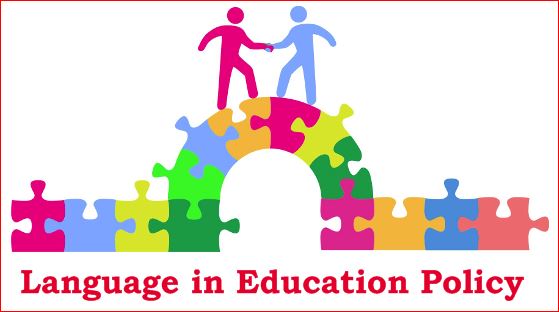
Language in Education Policy
- August 28, 2020
- 0
Language in Education Policy
The report by D.S.Kothari in 1966 stated that ‘there is a need for an education policy that has enough flexibility to adapt to changing circumstances. In this, the importance of experimentation and innovation should be underlined … At this time the only most important thing is to get rid of the inertia of the existing system.’ Apart from this, it has also been emphasized that ‘work experience (which includes physical labor, production experience, etc.) and social services should be made an essential part of general education at all levels’. Finally, it was said that ’emphasis should be laid on incorporating moral education and a sense of social responsibility’.
Pokhriyal’s new national education policy is even more ambitious than the Kothari Commission report. There are many positive things involved. For example, the emphasis on mother tongue in early learning, incorporating pre-school education into the dominant educational system and flexibility in curriculum structure. Their success depends on the response of more than 30 states and union territories.
The truth is that like Hindi, acceptance of English is more than mother tongue. The aspiration of English as a language is no longer governed only by colonial history. That was three generations old. It will never become the primary language of spoken or politics in most households. Keep in mind that only one of the 10 most popular newspapers in the country is printed in English. The English share in television news and entertainment media is also very low. But the English will continue in their place in the corporate and financial world and in the big courts. It will also be included in two official languages in the near future. Perhaps it should be so.
शिक्षा नीति में भाषा
डी.एस कोठारी ने 1966 की अपनी रिपोर्ट में कहा था कि ‘एक ऐसी शिक्षा नीति की आवश्यकता है जिसमें इतना लचीलापन हो कि वह बदलती परिस्थितियों के साथ ढल सके। इसमें प्रयोगधर्मिता और नवाचार के महत्त्व को रेखांकित किया जाए… इस समय इकलौती सबसे जरूरी बात है मौजूदा व्यवस्था की जड़ता से निजात।’ इसके अलावा इस बात पर भी जोर दिया गया है कि ‘कार्यानुभव (जिसमें भौतिक श्रम, उत्पादन अनुभव आदि शामिल हों) और सामाजिक सेवाओं को सभी स्तरों पर सामान्य शिक्षण का अनिवार्य अंग बनाया जाए।’ सबसे आखिर में कहा गया कि ‘नैतिक शिक्षा और सामाजिक उत्तरदायित्व की भावना को शामिल करने पर जोर दिया जाए।’
शिक्षा मंत्री पोखरियाल की नई राष्ट्रीय शिक्षा नीति, कोठारी आयोग की रिपोर्ट से भी अधिक महत्त्वकांक्षी है। इसमें कई सकारात्मक बातें शामिल हैं। मसलन शुरुआती शिक्षण में मातृभाषा पर जोर, विद्यालयीन शिक्षा से पहले की पढ़ाई को प्रमुख शैक्षणिक व्यवस्था में शामिल करना और पाठयक्रम के ढांचे में लचीलापन। इनकी सफलता 30 से अधिक राज्य और केंद्र शासित प्रदेशों की प्रतिक्रिया पर निर्भर है।
सच तो यह है कि हिंदी की तरह अंग्रेजी की स्वीकार्यता भी मातृभाषा से अधिक है। बतौर भाषा अंग्रेजी की आकांक्षा अब केवल औपनिवेशिक इतिहास से संचालित नहीं है। वह तो तीन पीढ़ी पुरानी बात हुई। यह कभी अधिकांश घरों में बोली जाने वाली या राजनीति की प्राथमिक भाषा नहीं बन पाएगी। यह बात ध्यान रहे कि देश के 10 सर्वाधिक लोकप्रिय अखबारों में से केवल एक अंग्रेजी में छपता है। टेलीविजन समाचार और मनोरंजन मीडिया में अंगे्रजी की हिस्सेदारी भी काफी कम है। परंतु अंग्रेजी काॅर्पोरेट और वित्तीय जगत तथा बड़ी अदालतों में अपने स्थान पर कायम रहेगी। निकट भविष्य में यह दो आधिकारिक भाषाओं में भी शुमार रहेगी। शायद ऐसा ही होना भी चाहिए।
































































